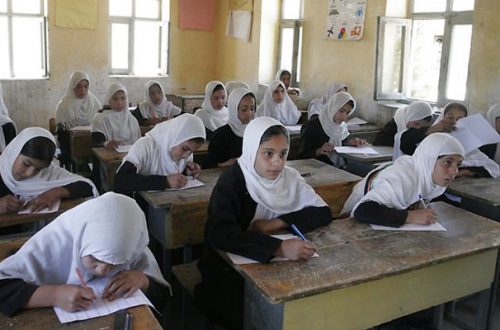Is Obama going to be the man that calls time on the support of the fragile nation of Afghanistan? Accused of dithering, it is thought he will decide about further deployments to within a week of returning from the far east.
Eliot Cohen, a military historian who worked in the George W. Bush administration (and who supports sending more troops), described the dilemma this way: “If he goes ahead with this decision, he’s basically going to be a war president.” That means devoting more budget money — and even more important, more of his own time and political capital — to waging the war. It could also mean paring back his domestic agenda, already slowed by economic and political adversity. It’s no wonder he’s hesitating.
Initial hopes about Obama’s commitmment to Afghanistan looked good. The increasing pressure being placed on the Taliban in Pakistan in recent months also seemed to make it unlikely that the international community would weaken the effort on the other side of the border. Sadly, this may not be the case, and if Obama blinks then we will all blink with him. We may soon abandon the Afghans to a civil war.
Are modern democratic civilisations politically able to sustain military efforts in support of others? Polling suggests not.
In the US, 56% of the population don’t want additional boots on the ground, and 58% oppose the war.
In the UK, 7 out of 10 ten Britons prefer “peace”. Peace being the phased withdrawal of UK troops from combat operations. Of course, all combat would immediately cease…
In Afghanistan, there is a growing sense of optimism in the population, and “70 percent of those polled say the Afghan National Army and police continue to need the support of foreign troops and cannot operate by themselves”. Security remains a key concern.
Afghans should remain calm if they read The Independent’s editorial today. For The Independent informs us of the Red Cross’s “powerful dossier [which] reveals how women and children in Afghanistan are bearing the brunt of the ongoing conflict, undermining the international community’s claims that they are the very people being helped by the West’s activities”. Yes, despite the fact Afghans are being blown up in markets by suicide bombers, the real problem is the people the Afghans want to stay. The Independent notes that:
The number of botched Nato air strikes, killing civilians, is continuing to rise. Latest UN figures for the first half of this year alone report 40 rogue air strikes, which are believed to have killed 200 civilians. The figure compares with the 116 Afghan civilians killed in 13 aerial strikes in 2006, and 321 in 22 attacks the following year. In 2008, 552 were killed.
The total number of “internally displaced persons” is rising for the first time since 2001.
More than eight years after the war began, the country’s literacy rate is still the fourth-lowest in the world, and almost half of all children between seven and 12 are not attending primary school.
It is undoubtedly true that those living in Afghanistan are living lives that few in the Western world can imagine, facing incredible hardships and even sadly death at the hands of those charged with protecting them. However, it is not made clear at all that removal of international forces will produce a land of peace and harmony. Even if the Taliban are not ultimately sucessful in recapturing the whole country and dragging Afghanistan further down the league tables (not to mention killing everybody who worked with the “crusaders”), there would be a civil war on a far worse scale than now. The Taliban are now restricted to guerilla warfare due to NATO’s prescence. Do we really want to be responsible for triggering full scale civil war again ? I leave aside the concerns about the effect on Pakistan and on Al Qaeda’a operational abilities.
There are people there we have a moral duty to protect and support, until they are able to do so themselves:
Afghan women have strong views on these subjects — 80 percent feel they should be allowed to seek outside employment compared to just 55 percent of men. But they are also aware that the tide is beginning to run against them. They also know that should the Taliban return to power, whatever gains they have registered the past eight years, whatever rights they have gained, will vanish.
Finally, Afghans have not given up on the promises of democracy — 78 percent see it as the best form of government available.
Abandon Afghans? Not in my name.
